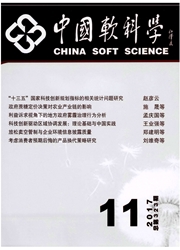

 中文摘要:
中文摘要:
十三五规划将众包作为拓展产业发展空间、提升产业创新能力的孵化模式之一。众包模式的实施依赖于每个接包个体或群体的自组织生产。顾客作为众包任务接包者之一和产品最终使用者,厘清其自我生产的前因及其对企业的影响具有重要意义。本文依据MOA理论和自我服务偏见理论构建顾客自我生产前因与影响理论模型,并通过市场研究公司收集数据进行实证检验。结果发现:顾客自我生产是动机、机遇和能力共同作用的结果,三者在领域兴趣、预期收益等因素对自我生产影响过程中具有完全中介作用;自我生产可以明显提升顾客的企业评价、后续购买意愿和口碑宣传意愿,但仅发生在生产结果低于顾客预期情况下;当生产结果高于顾客预期时,自我生产对企业并无显著影响。
 英文摘要:
英文摘要:
The 13^th national five-year development plan considers crowdsoureing as one of the patterns to expand industrial development space and to enhance industrial innovation ability. The implementation of crowdsourcing depends on every participant's self-organization production. As customers are one type of the participants and the users of final product, exploring the antecedents of customer self- production and its impacts on the firm that implements crowdsoureing has great implications. Drawing on MOA theory and self-serving bias theory, this study firstly constructs a theoretical model that includes the antecedents and impacts of customer self-production, and then conducts two empirical studies to test the hypothesis in the theoretical model. Empirical results show that customer self-production is codetermined by customer motivation, customer ability and situation opportunity. And customer motivation, customer ability and situation opportunity fully mediate the effect of the antecedents (domain interesting, expected return etc.)on customer self-production. It also shows that customer self-production has no significant influence on the firm when the quality of outcome product was higher than customer expectation, but has positive impacts on customer evaluation, purchase intention and word-of-mouth when the quality of outcome product was lower than customer expectation.
 同期刊论文项目
同期刊论文项目
 同项目期刊论文
同项目期刊论文
 期刊信息
期刊信息
